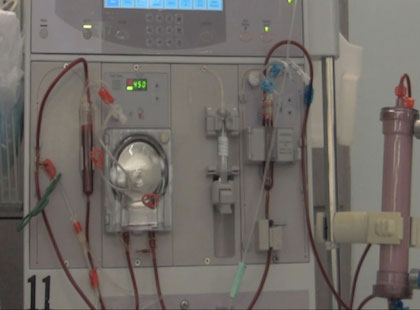
ABOUT THE PROJECT
LOGLINE
Dialysis patients, medical professionals, and whistleblowers unmask the multi-billion U.S. dialysis care industry that profiteers from patient deaths - treating nearly half a million Americans like cash cows.
SYNOPSIS
A damning hidden narrative has been scattered throughout court documents, social media, and online forums. Dialysis patients say:
“I’m scared as hell!”, “…they refused to treat me…”, “…they have retaliated against me.”
As the Trump administration looms over American healthcare, the feature documentary, BLOOD MONEY: Patients for $ale, exposes systematic abuse against dialysis patients and confronts the big money behind it.
31 million Americans have chronic kidney disease. Then the only treatment options are dialysis or a rare transplant. A disproportionate number of dialysis patients are both low-income and a minority. Dialysis patients suffer through three grueling hours of treatment three days a week. They endure common but severe side effects—nausea, muscle cramping, blood clots, and depression. During dialysis, patients are hooked up to a machine that filters and pumps their blood outside of their bodies. When patients report wrongful treatment, they are often instantly terminated from care. Over 1,000 patients annually, according to nephrologist Dr. Robert Bear, are involuntarily discharged or “blackballed” from local clinics.
Providers emphasize higher profits, reaping 34 billion dollars annually from Medicare payments as federal health care law is incentivized to maximize shareholder value.
To contextualize these documents and the industry’s money trail, BLOOD MONEY director Gordon Skinner has interviewed nephrologists, dialysis center staffs, investigative journalists, policy experts, local politicians pushing legislation to stop abuses, and medical ethicists. Coupled with a groundswell of activism and pending lawsuits, BLOOD MONEY spotlights the whistle-blowing efforts of Arlene Mullin, a dialysis advocate, and the networks of resilient patients who set a precedent for fixing the American approach to healthcare.
PROJECT TYPE Documentary Feature
DIRECTOR Gordon Skinner
PRODUCER Gordon Skinner